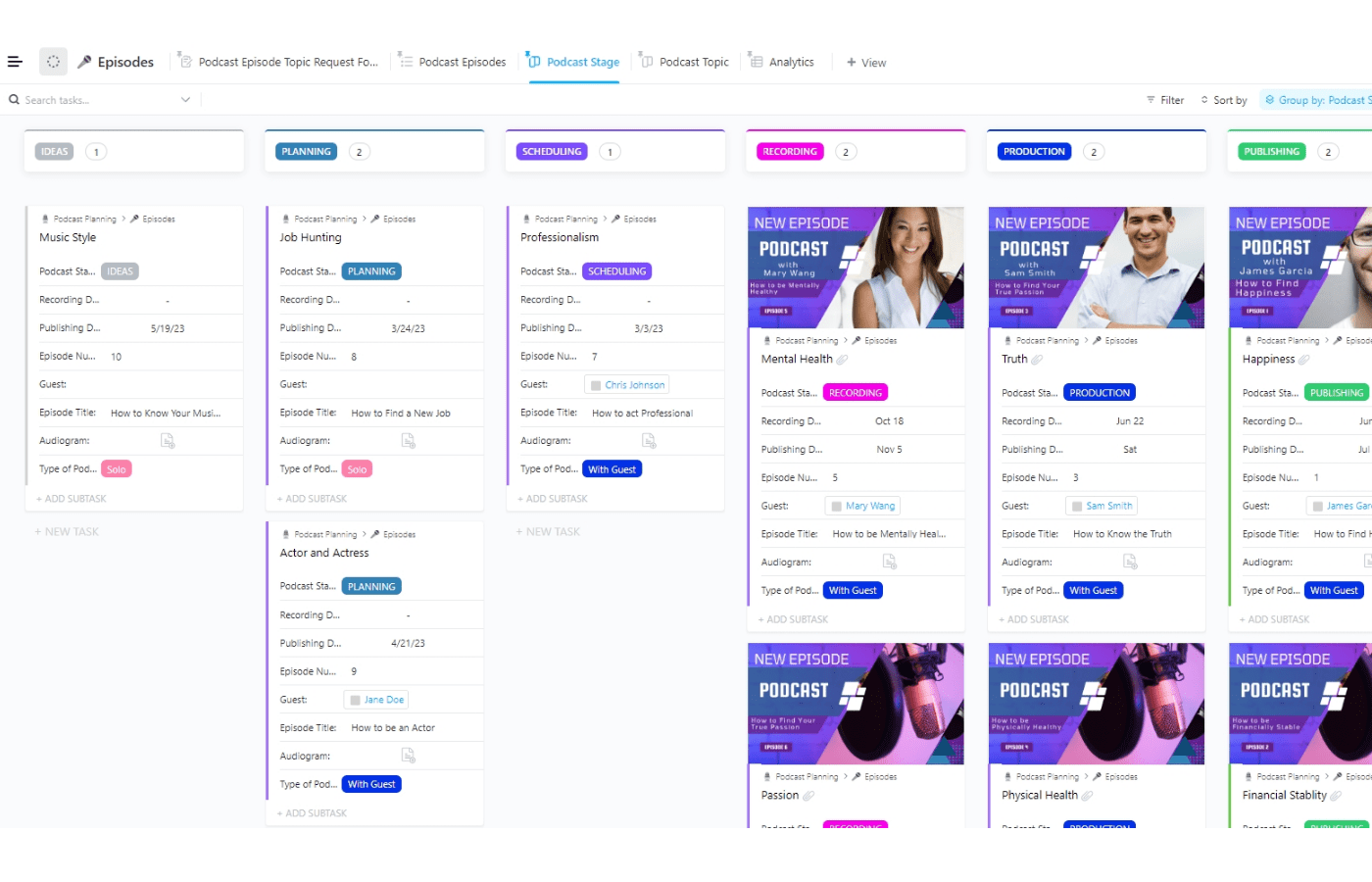Key takeaways
Project management is a fast-paced and results-driven field where success is often measured by the timely delivery of projects that fit within scope and come in or under budget. However, any truly successful conduct of a project extends far beyond these simple metrics. It must also be devoid of ethical issues in project management.
Ethical project management is not just about following a simple set of guidelines laid out as tidy bullets; it is about trust, accountability, and integrity. Nor are ethical issues faced by project managers just theoretical concerns. They have concrete, real-world implications that can determine the fate of a project and those involved. Even misrepresenting the progress of a project can lead to significant delays and cost overruns. This can result in, at best, losing stakeholder trust and damaged reputations, and at worst, legal ramifications.
How Important Are Ethics in Project Management?
Ethical conduct in project management is essential for ensuring success while preserving trust, accountability, and integrity. It is vital for project managers to prioritize ethical practices, cultivating an environment where stakeholders are confident in the process and outcome. Trust underpins open communication and collaboration, which are essential for achieving optimal project goals.
Another key aspect of ethics in project management is accountability. It is essential that project managers and their teams take responsibility for their actions. Fostering a culture of responsibility means addressing issues promptly to prevent projects from veering off course.
Similarly, integrity plays a third but no less important role. Integrity is a commitment to doing the right thing, even when unobserved. Integrity builds long-term credibility, ensuring that decisions are made fairly and honestly.
One case involving ethical issues in project management where these three ethical tenets weren’t observed is the Denver International Airport baggage handling system fiasco in the 1990s. Due to a lack of transparency and misrepresentation of project progress, it resulted in significant delays and cost overruns exceeding over half a billion dollars.
This example illustrates how ethical oversights can have far-ranging and severe consequences, not only to the project but to the broader organization itself. When project managers emphasize ethics, they can ensure they deliver successful projects while simultaneously building strong, trusting relationships with stakeholders.
Understanding Ethics in Project Management
Ethical issues in project management mean navigating complex decisions that impact not just the project itself but the people involved. Project managers will encounter ethical dilemmas, which arise when there are conflicting interests, ambiguous guidelines, or pressure to deliver results at the expense of ethical standards. Understanding such dilemmas is crucial for project managers to maintain their integrity while effectively leading their teams.
Conflict of interest
Definition: A conflict of interest, in project management terms, occurs when a project manager or any member of their team has personal interests that may unduly sway their professional decisions. Common ethical issues in project management arise when personal relationships, financial incentives, or other external factors impact decision-making in such a way that it compromises the project’s integrity or stakeholder interest.
For example, a project manager might be tempted or persuaded to award a contract to a relative’s company instead of other vendors offering better value and quality. This can result in poor outcomes, loss of stakeholder trust, and possible legal issues.
Resolution: To avoid a conflict of interest, you must establish clear guidelines with firm boundaries between personal and professional interests. Part of effective crisis management is to always have policies in place that require all parties to disclose any potential conflicts as soon as they are identified.
It is crucial that everyone is transparent, openly communicates, and that project managers loop stakeholders into the decision-making process, ensuring that decisions are in the best interest of the project and not for personal gain.
Organizations should also feel empowered to promote ethical behavior by offering training to recognize and manage conflicts of interest while creating an environment in which ethical considerations are prioritized over personal gain. If a potential conflict of interest arises, individuals should recuse themselves from decisions where they cannot adequately avoid damaging the integrity of a project.
Misrepresentation of project status
Definition: Misrepresentation of a project’s status means providing false or misleading information about the progress, risks, or overall condition of a project. This occurs when a project manager, whether intentionally or under pressure, presents an overly positive view of a project’s progress, downplays risks, or purposely omits critical information to avoid undue scrutiny or satisfy stakeholders.
Misrepresentation as an ethical issue in project management can lead to big problems, including unrealistic expectations, poor decision-making, and lack of readiness for potential challenges. This can result in project delays, budget overruns, loss of stakeholder trust, and legal ramifications if stakeholders believe they were deceived.
Resolution: To avoid misrepresentation, you must foster a culture of honesty and integrity within the project management team. Project managers should feel empowered to communicate project status to stakeholders and provide accurate and transparent updates, even if the news is negative or unfavorable. Regular audits and reviews should be conducted to ensure updates are accurate and truthful, allowing for corrective behavior before issues escalate.
Additionally, it is vital to create an environment where team members feel safe to report their concerns without fear of retaliation. This further promotes transparency, prioritizes honesty, and implements checks and balances that project managers can use to build trust with stakeholders while ensuring project decisions are based on accurate information.
Cultural insensitivity and lack of diversity
Definition: Successful project managers must remain culturally sensitive and embrace diversity, navigating challenges that arise when managing teams and working with stakeholders from various cultural backgrounds.
Examples of ethical issues in project management related to cultural insensitivity include differences in communication styles, work ethics, decision-making styles, and values. Misunderstanding or being insensitive to these cultural differences might lead to conflicts, reducing team cohesion and diminishing your project’s effectiveness.
For example, different cultures have varying attitudes towards professional hierarchy and authority, which might affect how team members interact with project leaders and potentially lead to misaligned expectations and goals.
Resolution: To promote cultural sensitivity and diversity, you must foster an inclusive environment. Cultural awareness training for all team members and stakeholders provides an effective approach. Such training will help individuals understand and appreciate different cultural norms and practices, reduce misunderstandings, and cultivate mutual respect.
Additionally, emphasizing respect for diversity in all project activities—decision-making, team interactions, stakeholder communications—will help ensure all team member perspectives are considered and valued. If you create policies that promote inclusivity and actively address bias or discrimination, you can enhance a project’s ability to leverage the strengths of your team’s diversity.
Embracing and valuing cultural differences enables project managers to improve collaboration, enhance creativity, and contribute to the overall success of the project.
Read more: Tips to Manage an Interdisciplinary Project Team
Legal and regulatory non-compliance
Definition: It should go without saying that project managers should ensure that projects adhere to all relevant laws, regulations, and industry standards. Legal and regulatory compliance means understanding and implementing applicable legal requirements, such as safety regulations, environmental laws, and industry-specific standards.
Legal and regulatory non-compliance as an ethical issue in project management can result in significant consequences, such as fines, lawsuits, project delays, and damage to the organization’s reputation. For example, a construction project might fail to meet building codes or safety regulations. This could result in regulatory penalties while jeopardizing the project’s completion date and creating safety issues.
Resolution: Project managers can ensure compliance by staying informed about the legal and regulatory requirements relevant to their projects. They should continually research and remain updated on any changes in laws and regulations. Consulting with legal experts is also critical in obtaining guidance on often complex compliance issues as well as interpreting legal requirements accurately.
Project managers should also incorporate compliance checks into their project plans to ensure all the required regulations are understood and addressed throughout the project lifecycle. This means conducting regular audits and reviews to make sure the project is adhering to legal standards.
Proactively managing compliance in project management minimizes risks, prevents legal blowback, and keeps the project aligned with all standards and regulations.
Stakeholder mismanagement
Definition: Any project you manage will usually have stakeholders with a variety of interests and expectations. This can include clients, team members, investors, and other parties with a vested interest in the project’s outcome.
Understanding the diverse needs and expectations of all these parties is key to effective stakeholder management. Furthermore, you must be able to address their concerns throughout the project’s lifecycle.
All these stakeholders are bound to have conflicting interests and priorities, and it can be challenging to address them, but failure to do so can often lead to dissatisfaction, conflict, and delays.
Resolution: Managing stakeholders effectively means having a comprehensive stakeholder engagement plan. Such a plan outlines strategies for identifying each stakeholder, their interests and expectations, and then outlining methods to keep them updated, informed, and involved.
In this, effective, open lines of communication are critical. Conduct regular updates, meetings, and solicit feedback to help ensure stakeholders remain aware of project progress and any issues that may arise.
Prioritize transparency in your communication to earn trust and prevent misunderstandings or disputes. Proactively engaging with stakeholders and addressing their concerns quickly builds strong relationships, encourages collaboration, and contributes to the project’s overall success.
Key Strategies to Prevent Ethical Issues in Project Management
Preventing ethical issues in project management requires a proactive approach incorporating strategies to ensure ethical behavior throughout the project lifecycle. This includes comprehensive training, awareness, and established decision-making frameworks so project managers can uphold the highest standards of integrity and transparency.
Training and professional development
Definition: It is essential to provide regular training and professional development to project managers and team members to enhance their understanding of ethical practices and principles. Such training helps ensure everyone working on the project is on the same page, aware of, and adhering to the same ethical standards. This reduces the likelihood of ethical lapses and fosters a culture of integrity.
Steps: To effectively incorporate ethics into professional development, ethics training should be part of every team member’s onboarding process. This includes workshops, seminars, and e-learning modules focusing on common ethical issues in project management.
Additionally, certifications in ethical project management practices, such as ones offered by professional organizations, can underpin training with a sense of legitimacy and provide formal recognition to an individual commitment to ethics and ethical standards.
Regular ethics training as part of regular professional development thus helps build a strong ethical foundation, improves decision-making, and supports a culture wherein everyone is accountable and responsible.
AI and ethical considerations
Definition: AI and ethical considerations present new challenges that need to be addressed in project management. Using AI responsibly is crucial to avoid biased decisions, unfair practices, or unintended negative consequences. As AI technologies become increasingly integrated into project management processes, it is vital to address and mitigate any ethical issues in project management that may arise with their use.
Steps: To manage these ethical considerations, organizations must develop clear and comprehensive guidelines for using AI tools responsibly. Instead of attempting to avoid AI integration, guidance should be provided on aspects such as transparency. Ensuring that AI systems are understandable and their decision-making processes are clear is critical to maintaining project management ethical issues. AI tools must be designed and utilized in a manner that is fair and unbiased. Regular audits and assessments should be conducted to verify that AI systems align with ethical standards and that any issues that arise are swiftly addressed.
By implementing these measures, organizations can leverage the benefits of AI while upholding ethical principles and protecting stakeholder trust.
Corporate governance and social responsibility
Definition: Corporate governance and social responsibility in project management involve aligning projects with an organization’s core values and contributing positively to society. Managing projects to reflect a company’s ethical standards and commitment to social and environmental responsibility ensures that outcomes benefit both the company and the broader community.
Steps: Organizations should align their projects with corporate values to enhance social responsibility. This means integrating Corporate Social Responsibility (CSR) principles into project goals. Objectives should be set that support ethical practices, environmental sustainability, and positive social impact. Regular assessments of the project’s impact on the community and environment ensure adherence to CSR commitments.
By continuously evaluating and adjusting project strategies based on these assessments, organizations can ensure a positive project impact while reinforcing their commitment to corporate governance and ethical practices.
Read more: The Role and Importance of Project Governance
Decision-making frameworks for ethical challenges
Definition: Implementing decision-making frameworks for ethical challenges means using structured approaches to guide individuals in making ethical decisions in complex or ambiguous situations. Such frameworks provide a systematic way to evaluate options, consider potential impacts, and make decisions that align with the company’s ethical principles. Project managers can use these models to navigate ethical dilemmas effectively, ensuring decisions uphold integrity and fairness.
Steps: To effectively resolve ethical dilemmas, implementing a decision-making model like the Ethical Decision-Making Framework (EDMF) is a practical approach. An EDMF provides a structured process for evaluating ethical issues and making informed decisions. By using such a framework, project managers can systematically analyze the ethical implications of their decisions, considering potential consequences for stakeholders, and making decisions that align with both ethical standards and organizational values.
Providing regular training on these frameworks supports effective decision-making and ensures that ethical considerations are well integrated into all daily project management practices.
Bottom Line
Integrating ethics into every aspect of project management is crucial for ensuring successful and sustainable outcomes. Ethical practices foster a culture of trust, accountability, and integrity, which are fundamental for building strong relationships with stakeholders and achieving project goals. By prioritizing ethical standards, organizations can navigate challenges effectively and make decisions that align with both organizational values and societal expectations.
Proactive measures such as implementing comprehensive training programs, developing decision-making frameworks, and ensuring compliance with legal and regulatory standards are essential for preventing ethical dilemmas. These strategies help identify and address potential issues before they escalate, maintaining the project’s integrity and reducing risks.
Ongoing ethical education and awareness are vital for successful project management. Regular training and updates on ethical practices keep team members current, informed, and prepared to handle complex ethical issues project management presents. By embedding ethics into the organization’s culture and project processes, project managers can uphold the highest standards of conduct, contributing to the overall success and reputation of the projects and organizations they lead.





